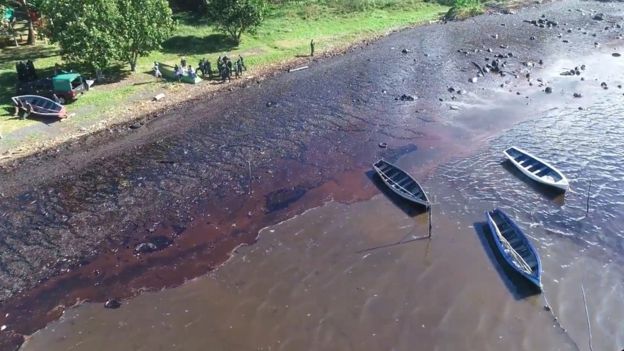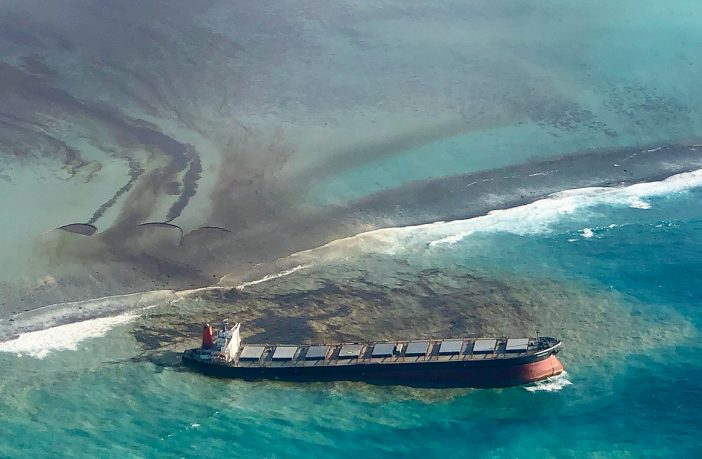- More than 1,000 tons of oil have leaked from a cargo ship and into the biodiversity-rich coastal waters of Mauritius.
- The leak has grave implications on the habitats and the economy of this Indian Ocean island nation, which relies on fishing and tourism.
The MV Wakashio, a Japanese bulk-carrying ship that had no cargo, ran aground on a coral reef off the Indian Ocean island on 25 July and its crew was evacuated. Battering waves have since cracked its hull open, leaking its engine fuel since Thursday (last week). It is estimated that about 2,500 tons of its 4000 fuel-load remain in the ship and authorities are trying to contain the situation.
France has pledged support and the ship’s owner said it was working to combat the spill. Mauritius Prime Minister Pravind Jugnauth declared the state of emergency late on Friday. He said the nation did not have “the skills and expertise to refloat stranded ships” as he appealed to France for help.

Pic: Oil spill reaches the beaches of Mauritius. Credit: REUBEN PILLAY/REUBSVISION.MU
In reaction to the unfolding environmental disaster, Landry Ninteretse, Africa Managing Director of environmental organisation, 350.org said:
“This unfortunate event brings to the fore the negative effects of oil. Mauritius is not an oil producing country but now has to contend with an oil spill that threatens its reefs, inlets and islands that are home to renowned conservation sites and endangered species.
In recent times, the international scientific community is telling us that the world cannot absorb any new fossil fuel developments if we are to tackle the climate crisis, and this unfortunate event shows exactly why we need to move away from oil, coal and gas, they all have negative impacts on the environment including air and water pollution, with dire consequences on the health of human beings and biodiversity.”
Author: Bryan Groenendaal
















1 Comment
We have a green solution for the spillage just not the political relations to get to offer it